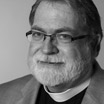I’m not fond of litigation. I take our witness to the world very seriously, and the damage to that witness from Christians suing each other is serious. And even though my former profession as a criminal prosecutor put me in the position of litigating daily in the courts, I would much prefer followers of Jesus Christ being able to follow I Corinthians 6 and work out their disagreements within the Church, through church or secular sponsored arbitration services and negotiated settlements.
I cannot, however, let the injustice pass that occurred in the oral arguments before the South Carolina Supreme Court, between the Diocese of South Carolina (Bishop Mark Lawrence) and The Episcopal Church (TEC.) There must have been quite a few people watching the live stream—because there apparently wasn’t any room for me to access it when I tried. But attorney Alan Haley (aka The Anglican Curmudgeon), was able to watch it and then review it again in the archives to make the following point.
The newest Justice of the South Carolina Supreme Court, Kaye Hearn, should have recused herself from the hearing. During the proceedings, she demonstrated blatant bias, prejudice, and disregard for court precedent throughout the hearing. It is no surprise that she is a member of a TEC congregation in South Carolina and a founding member of The Episcopal Forum of South Carolina, which helped bring disciplinary charges against Bishop Mark Lawrence under TEC’s Title IV.
Alan Haley has done an exhaustive job detailing the evidence of bias in Justice Hearn’s questions, citing for any listener the exact point in the tape where she speaks. You can find his analysis here and I encourage you to read it all. But the points he makes are:
- Her questions seemed designed more to encourage and advance the arguments of TEC attorneys than to probe the various issues in the case;
- Many of her “questions” were actually advocacy statements for TEC which would scarcely have been appropriate for a sitting Justice to make in an impartial court hearing;
- She tried to interject the issue of Bishop Lawrence’s “faithfulness to his ordination vows” into the hearing—knowing that this is never a matter before the jurisdiction of the civil courts, in this or any case! It is and always has been a matter for the internal disciplinary courts of the church.
- She suggests that the three new Justices could overturn the unanimous decision of the South Carolina Supreme Court in All Saints v. Waccamaw, in which the court ruled that there is no such thing under South Carolina trust law as an “implied trust” imposed unilaterally by a church, thereby overturning any claims by TEC under its “Dennis canon.” As Haley notes, “only a person who resented that decision personally when it came down, and who has fought it since, would spend so much effort trying to discredit it in court.”
And so Alan Haley concludes:
“This was truly a disgraceful performance and display of impropriety by one of the country’s highest sitting judges. If she does not recuse herself post-argument, there should be, at a minimum, an investigation as to whether Justice Hearn violated Canons 2 and 3 of the South Carolina Code of Judicial Ethics.”
So why am I spending your time reviewing this case? Because Archbishop of Canterbury Justin Welby has called a gathering of Primates in January, 2016 to review the state of the Anglican Communion, a gathering to which he has invited Anglican Church in North America (ACNA) Archbishop Foley Beach. TEC and the Anglican Church of Canada will be there too. Some have said that this is Archbishop Welby’s attempt to take the Primates back to 2007, to the Dar es Salaam meeting, when the last serious attempt to discipline TEC and the Anglican Church of Canada was made. Among the recommendations the Primates made at that meeting in Dar es Salaam was an immediate end to litigation in North America.
A few years later, the Anglican Consultative Council (ACC) met in Kingston, Jamaica. For various reason I had a front row seat to this gathering. I watched Bishop Bill Godfrey (Southern Cone, Peru) address the delegates to the ACC with a proposal he said he had negotiated with the Presiding Bishop of The Episcopal Church to call a “cease fire” to the litigation. We will never know the details, or what might have happened, because the then Archbishop of Canterbury, Rowan Williams, approached the microphone and said there was no need to vote for the recommendation to halt the litigation. Archbishop Williams stated that he had a new scheme of “visitors” who would be coming to North America to sort things out. He also said that they would not be like the ineffectual “Archbishop’s Panel of Reference,” a previously failed attempt to deal with litigation issues in the Anglican Communion. Well, nothing ever came of the Archbishop’s “pastoral visitors” scheme. In fact, I watched as a vote to affirm the Primates’ call from the 2007 Dar Es Salaam meeting, which asked for a cease fire on litigation, failed.
The only thing that didn’t fail was The Episcopal Church’s willingness to sue people. The length, breadth, depth and cost of TEC’s litigation against departing Anglicans actually intensified. And why not? There was no authority in the Anglican Communion to stop them. There were no negotiated settlements. In fact, in one case, TEC preferred to sell a church to Muslims than to departing Anglicans. And as we know from the story of Good Shepherd, Binghamton, NY, TEC kicked them out so thoroughly and so fast that they had to put up signs to direct the poor, the hungry and the homeless to the temporary shelter they had to find hurriedly for their soup kitchen.

In 2010 I was present for Mrs. Lorna Ashworth’s private member’s motion to the Church of England General Synod to recognize the Anglican Church in North America. Before the debate I had a conversation with the bishop of a senior “See” (diocese) in the Church of England. He told me of a conversation he had with a newly consecrated TEC bishop in their 2008 Lambeth Conference “Indaba” group. The TEC bishop told everyone in the group that TEC was not suing anyone in North America—rather, they were merely defending against lawsuits launched by the departing Anglicans![1] This bishop went on to say that TEC had no policy of suing individuals either. So the English bishop asked me “is this a white lie, or is it what we here would call a ‘porky’?”
I answered appropriately, providing from my chancellor friends the cover pages of the lawsuits against all the departing congregations in Virginia alone. Those cover sheets stated TEC as the plaintiff (the “suing” party) and over 200 individual vestry persons and trustees of those departing congregations sued by TEC, by name, in their capacity as individuals. We (the American Anglican Council) did that because of TEC’s reckless indifference to the truth—indeed, their willingness to misrepresent the facts entirely.
And now, today, in addition to reckless misrepresentation of the facts, we have TEC members sitting as Judges and acting as advocates for TEC cases—in reckless indifference to principles of justice and fair play, violating ethical Judicial standards for impartiality. Of course, as Alan Haley notes, we have seen this before. It happened here in Georgia with the Christ Church Savannah case, where a Justice of the Georgia Supreme Court recused himself because he was a member of an ACNA congregation. But the Justice who was a member of a prominent TEC congregation, and who subsequently authored the opinion against Christ Church, did not recuse himself. And this is not an isolated incident. It happened in Virginia as well. We can certainly see a pattern developing.
So we come back to the Archbishop of Canterbury and his call for a gathering of Primates. If this is not just another “gabfest,” if this is really an attempt to return to the authority the Primates were willing to exercise back in 2007 at Dar, what will this Archbishop of Canterbury do with TEC, the Anglican Church of Canada and the endless litigation? The new Presiding Bishop of TEC, Michael Curry, will be there. He has just a month before he takes office—but so far, his utter silence on TEC’s litigation speaks volumes. There is no reason to believe this late in the game that he will change any policy or strategy. The litigation will go on as long as the dollars remain to fund it.
What will the Archbishop of Canterbury say to him? If past history is an accurate predictor of future performance, all we can expect him to do is say “welcome.” To do otherwise would require great courage to reverse the precedent of the previous Archbishop of Canterbury, who actively intervened to allow the litigation to continue without comment, and without any discipline within the instruments of the Communion. We have not seen such courage yet. So with all due respect, Archbishop Welby, what are you going to do about it?
[1] For a list of the lawsuits filed by TEC against departing Anglicans vs. the few cases where departing Anglicans filed first against TEC, please see our publications Final Tearing the Fabric 2012 and TEC-Overbearing and Unjust Episcopal Acts Feb 2010
The Rev. Canon Phil Ashey is CEO of the American Anglican Council.



